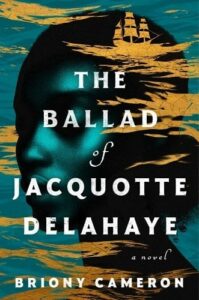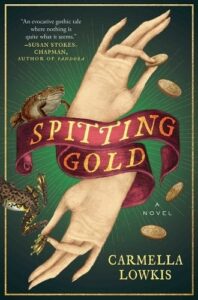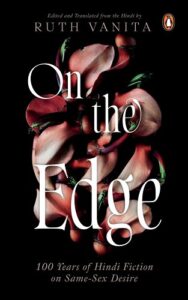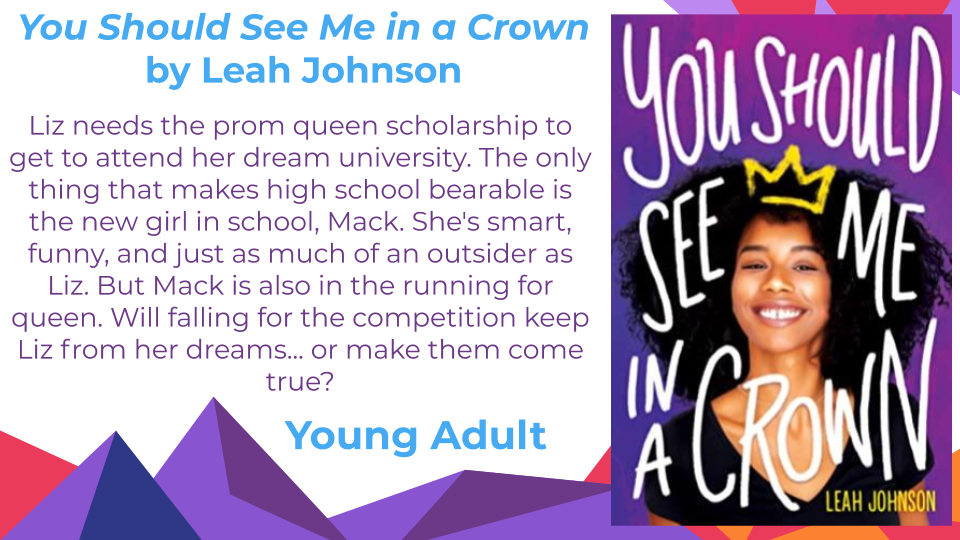As Pride Month draws to a close here in the states, here are three historical fiction books that blend insightful writing with action/adventure, twisty thriller tension, and bon-mot brilliance, respectively.
So much of history is about teaching us what has been possible, about what sorts of lives have survived, been mythologized, codified, recognized as worthy of being recorded and remembered. I hope that even as the rainbow marketing recedes from store shelves and social media logos, books like this remind us that our feelings, our intimacies, our narratives have been here long before we had singular words to encompass and categorize them.
The Ballad of Jacquotte Delahaye by Briony Cameron
A gritty, gripping, richly immersive story inspired by a 17th century pirate legend, Briony Cameron’s The Ballad of Jacquotte Delahaye rekindled an old love for adventure stories that I’ve sorely missed.
The story opens on the high seas, where our eponymous intrepid shipwright has found herself bound, wounded, and taken captive while in pursuit of her own fierce vision of freedom. It then dips back in time to show us how she got there, in the process building both a colorful portrait of the seventeenth-century Caribbean islands and a Django-esque revenge story that retains all the visceral, bloody violence of the films while adding rich dimension through a strong, fleshed-out focus on Jacquotte’s relationships with and care for her friends, crew-mates, and lovers.
You can tell how much care Cameron puts into her characters, their personalities seamlessly woven into the path of the plot and coming into focus in their interactions with others. There are no lone wolves here, no lone heroes. It takes a village to run a ship, and Jacquotte’s ascension from indentured shipwright to formidable captain is made all the sweeter by all the people she brings up with her. Honestly, this book is probably a better treatise on leadership than anything with that word in the title.
I am absolutely living for this new trend of stories that take the thrills and trappings of old-school adventure stories and repurpose those imperialist motifs and language to create detailed stories about queer women of color who’ve been kicking around and exploring this part of the world just as long as—if not longer—than the looters whose puffed-up legends formed a sizeable bit of my Early U.S. History curriculum back in high school (which was, incidentally, when I first saw the Indiana Jones movies).
Readers who want (sapphic) high-stakes adventure novels or heist stories filled with action, tension, visceral fight scenes and tender camaraderie will find a perfect text here. The care Jacquotte has for her crew and fellow downtrodden is wonderful and make the story so much more complex and emotional. I truly felt for the characters and their losses and pain, which is no small feat with such a sizeable cast and less than 400 pages.
Jacquotte is a survivor, and Cameron’s writing of her perspective is as singular and incisive as a skillfully handcrafted blade. But all her triumphs come with costs, often heavy ones.
I would caution readers about the prominence of period-specific racism in this book, though. While it always adds to the texture of the worldbuilding and serves to underscore and drive action, Cameron pulls no punches in either the language or its impact on the characters it is addressed towards.
Spitting Gold by Carmella Lowkis
If you’re on this website, chances are you will be able to spot one of the twists the first time it is so much as hinted at. But the ones that come after are what make this book worth reading, if you’re in the mood for a propulsive, action-fueled family drama filled with unlikeable people trying their best to get ahead in the world of post-Revolution nineteenth-century France.
The first half of Carmella Lowkis’s Spitting Gold feels like a bog-standard historical romance before spinning wildly into a great spooky beach read. Readers who enjoy stories about spiritualism and mediums’ lives beyond the performance will find a highly original work in this genre, with an intriguing, morally ambiguous story unfurling in the background of the séance scenes.
This book gives all the satisfaction of creepy metaphysical shenanigans in shadowy dark corners with the added satisfaction of girls kissing (though not much else). More of those beachy horror movies should have girls kissing, imo.
While there are some echoes of Sara Waters’s iconic Fingersmith in this story, it felt more like a cross between Libba Bray and Patricia Highsmith’s work, with the sort of reader-friendly and detailed worldbuilding of the former. Spitting Gold is shorter than most of the aforementioned authors’ novels, which means less room for Waters-style interpersonal studies, and a more focused cast than Bray’s larger series. The romance is not the focus, but the sapphics drive the plot in large measure.
Gothic lit purists might find themselves disappointed, however. This book is far more character focused than atmospheric, driven by the narrative more than metaphor or symbolism, in a way that might not entirely satisfy people looking for something that hews more closely to genre and Du Maurier. It’s not quite as liminal or focused on houses as metaphors, is what I’m saying.
And while I enjoy reading about people whose somewhat understandable worst impulses drive their actions, not everyone does. This book goes deeper into what vices resentment and loathing can breed. It is uncomfortable at times, but in a way that feels narratively consistent. Readers who want their sapphics relatively non problematic, or at the very least not explicitly spiteful, be forewarned.
On the Edge: 100 Years of Hindi Fiction on Same-Sex Desire edited and translated by Ruth Vanita
There’s a line from Tressie McCottom’s excellent essay collection where she writes about beauty, respectability and “self-definition masquerad[ing] as a notion of loving our black selves in white terms.”
All too often, stories that attempt to write queer people back into the histories that colonialism, racism, and other schemes of systemic violence have erased them from are met with the criticism that our use of English terms to describe our particular position on the spectrums of sexuality and/or gender is a capitulation to the colonizer’s pen, a sign that queerness itself is an import with no place in the indigenous culture(s). We’re told our love makes us instruments of colonial violence, even as vestigial colonial laws and mores are used to persecute and intimidate LGBTQ+ folks the world over.
Ruth Vanita’s latest transliterated collection is a joyful, vibrant refutation of those rootless exemplars of the bigoted rot that pervades even these postcolonial spaces and places. Queer feeling is the focus of each story in On the Edge. Though the characters (and likely even their writers) would not use or identify with the adjectives or archetypal narratives that suffuse our modern movie and streaming screens, their writing reveals what it means to feel queerly: to experience desire in shapes that aren’t reflected on silver screens, in post-colonial histories (all the stories in the collection were written in the 20th century), or even many family genealogies, overshadowed as they are by an overwhelming majority of heteronormative ones.
There’s so much emphasis on feeling here, it’s remarkable. To read these stories is to be transported into the singular minds of their protagonists and their conflicted, sometimes confounding actions. There are also an abundance of rich, novel metaphors that will appeal to language-loving literary fiction readers. It’s such a lovely cross-section, with stories that range from countryside comedies of manners with echoes of both Sanskrit plays and British holiday farces, to turbulent urban dramas located entirely in the mind of a woman possessed by unrequited passions. It would make a lovely gift for certain Hindi-lit-loving near and dear ones—the syntax and rhythm of Vanita’s English transliterations achingly reminded me of the R.K. Narayan and Munshi Premchand collections my grandparents used to gift me.
I was particularly delighted by the editor’s own story, “Vision”. It reminded me a lot of what I loved in Theodore McCombs’s 2023 short fiction collection—namely, the intimacies and awareness that can open up as we move through our preconceived notions about respectability and desire. I was moved to tears by this collection, by the concrete connection it offered me to a legacy that close friends and I have mostly had to cobble together through whispers and Wikipedia stubs.
I included this collection alongside the other novels because these three books seek, in their own ways, to put queer people back into the history of iconic periods that persist in the cultural imaginations: the Golden Age of Piracy, the spiritualism movement, and rapidly urbanizing post-colonial India. Each of these books takes familiar character concepts—the brutal captain, the scheming medium, the moralizing busybody—and allows us to participate in the (often ahistorical, mostly fiction-filtered) nostalgia these stories invoke.
#historical fiction #pirates #seances #mystery #adventure #history #literary fiction #annan #caribbean #india #lesbian



